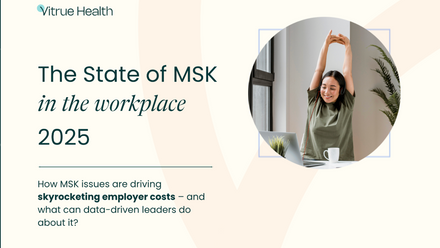How benefits can ease the impact of NHS delays on employees
Delays for NHS treatment have reached critical levels and the impact is increasingly felt among employers.
The latest figures from January 2023 indicate that more than 7 million people in the UK are waiting for NHS treatment. Around 3 million of these have been waiting longer than the supposed maximum waiting time of 18 weeks, while just under half a million have been waiting for more than a year.
Shockingly, this is around 231 times the number of people waiting for more than a year before the pandemic.
These people include those on waiting lists for treatment, those who have had procedures and referrals delayed or cancelled, and those who haven’t yet told their GP about their symptoms due to concerns about further burdening the NHS or the risk of Covid-19 infection.
The impact on employees
A study from October 2021 found that half of employees have been affected by NHS delays, while more recent data from December 2022 found that one in five who have been affected by the delays say their work has been affected.
This includes employees having to make changes to the tasks they do (around 40%), reducing working hours while they wait for treatment (20%) and having to go on long-term sick leave (10%).
It is estimated that the backlog will take years to clear, leaving huge numbers of employees struggling to cope with ill health or pain, as well as the anxiety experienced as a result of the uncertainty and delays. It’s easy to understand why many employers are re-looking at their health and wellbeing strategies and seeing how they can fill the gap.
The cancer conundrum
While delays are experienced throughout the NHS, cancer is of particular concern due to its increasing prevalence and the health service’s failure to meet government targets. Recent government data outlines the seriousness of the situation:
- Delays to cancer referrals
93% of people urgently referred to a specialist team with suspected cancer should be seen within two weeks. This deadline has not been met since May 2020 and in January 2023 stood at 81.8%. - Delays to cancer treatment
85% of patients with confirmed cancer should start treatment within 62 days of an urgent GP referral. In January 2023, 54.4% of patients were treated within this timeframe – a record low. - 96% of patients with a cancer diagnosis – covering all routes to diagnosis and not only those referred by their GP – should receive treatment within 31 days. In January 2023, performance was at 88.5% – another record low.
Delays to cancer referrals and treatment are becoming particularly concerning for businesses. In the US, cancer has outstripped musculoskeletal issues as the highest – and fastest growing – healthcare cost for employers, and the UK usually follows US health trends. Around 1.5% of the average workforce will receive a cancer diagnosis. However, the costs associated with the disease can be disproportionately high, exceeding 10% of employer’s healthcare budgets.
Optimising physical wellbeing strategy
But there are ways to play a positive role and limit the impact of these delays on your workforce. A simple but vital thing to do is review your policies and ensure they clearly outline what you offer, to promote employee understanding of what support they can expect, and any other information that may affect their role as a result of ill health and delays in treatment.
Support for carers and family members should be considered as part of this policy, as this group is often forgotten and they make up a large percentage of the workforce.
While wellbeing offerings are continually evolving based on the needs of staff, there are a additional considerations to be made to physical wellbeing strategies now that NHS delays are affecting employees to such a degree.
Promote preventative health
Providing high-quality health and wellbeing education, including smoking cessation support as well as opportunities to be active and make healthy food choices, is a cornerstone of disease prevention in the workplace. When it comes to cancer, help employees to understand their risk and see the value of NHS screening programmes and give them time off to attend them.
Digital solutions
Digital health is fast evolving and allows employees to receive high-quality care at lower costs, with reduced waiting times. It allows people to see specialists without having to leave work for hours or wait months for an appointment. It also means you can provide equitable benefits to people regardless of their location.
Offer employee health benefits
The private sector will be instrumental in helping to fill the gap caused by NHS delays. Private medical insurance (PMI) can help employees resolve health problems quickly, reducing absence. There are also cheaper alternatives if PMI cannot be provided for the whole workforce. Look at providers who offer wraparound care, which supports treatment and lessens the effect of delays.
The task may feel insurmountable for employers who are trying to promote a happy and healthy workforce during turbulent times. However, as external influences impact the workforce, employers who have bought into the positive effects of promoting physical wellbeing should take note that there are ways to tweak strategies and evolve them to reflect the ever-changing health needs.
Supplied by REBA Associate Member, Perci Health
Perci Health is the first digital platform bridging the gap between cancer and wellness.








